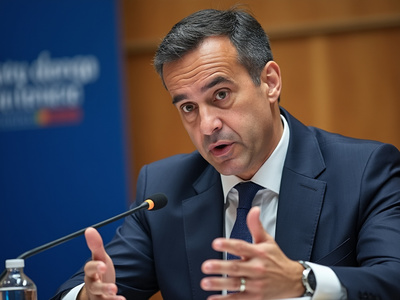Controversy Surrounds Madrid's Dos de Mayo Celebrations Amid Alleged Military Participation Ban
Isabel Díaz Ayuso claims Pedro Sánchez has prohibited the military from participating in upcoming regional celebrations.
Madrid's annual Dos de Mayo celebrations are poised to become a focal point of contention in 2025, as Isabel Díaz Ayuso, the President of the Community of Madrid, has publicly alleged that Spanish Prime Minister Pedro Sánchez has ordered a ban on military participation in the event.
Ayuso made these claims during an interview on March 14, characterizing the prohibition as 'painful' given the affection the military enjoys in Madrid.
She asserted that this decision is part of a broader pattern of attacks against her administration by Sánchez's government.
The Dos de Mayo, which commemorates the uprising against French occupation in 1808, has historically included military displays.
Sources from the Community of Madrid have noted that it is traditional for the celebrations to feature a civic-military tribute that honors the heroes of the uprising and includes involvement from the Armed Forces.
Last year, the event showcased a parachuting display by the Air Force's Acrobatic Parachute Team and a procession involving various military units.
Ayuso's remarks come in the context of an ongoing political rivalry between her and Sánchez.
Tensions have escalated in previous years, exemplified by incidents such as the blocking of access to the official viewing area during past celebrations, which was reportedly orchestrated by the Madrid protocol chief.
The forthcoming Dos de Mayo celebrations are further complicated by other political controversies, notably the airing of testimonies related to COVID-19 fatalities in Madrid nursing homes.
A documentary featuring accounts from families of the deceased has sparked significant media attention, creating a charged atmosphere leading up to the provincial holiday.
Ayuso's statements have underscored her view that the military holds a revered place in Madrid’s society, emphasizing that the proposed ban would represent a significant departure from longstanding traditions.
This situation continues to unfold as the date of the celebrations approaches, raising questions about the political landscape in Spain and the implications for regional governance.
Ayuso made these claims during an interview on March 14, characterizing the prohibition as 'painful' given the affection the military enjoys in Madrid.
She asserted that this decision is part of a broader pattern of attacks against her administration by Sánchez's government.
The Dos de Mayo, which commemorates the uprising against French occupation in 1808, has historically included military displays.
Sources from the Community of Madrid have noted that it is traditional for the celebrations to feature a civic-military tribute that honors the heroes of the uprising and includes involvement from the Armed Forces.
Last year, the event showcased a parachuting display by the Air Force's Acrobatic Parachute Team and a procession involving various military units.
Ayuso's remarks come in the context of an ongoing political rivalry between her and Sánchez.
Tensions have escalated in previous years, exemplified by incidents such as the blocking of access to the official viewing area during past celebrations, which was reportedly orchestrated by the Madrid protocol chief.
The forthcoming Dos de Mayo celebrations are further complicated by other political controversies, notably the airing of testimonies related to COVID-19 fatalities in Madrid nursing homes.
A documentary featuring accounts from families of the deceased has sparked significant media attention, creating a charged atmosphere leading up to the provincial holiday.
Ayuso's statements have underscored her view that the military holds a revered place in Madrid’s society, emphasizing that the proposed ban would represent a significant departure from longstanding traditions.
This situation continues to unfold as the date of the celebrations approaches, raising questions about the political landscape in Spain and the implications for regional governance.
Translation:
Translated by AI
AI Disclaimer: An advanced artificial intelligence (AI) system generated the content of this page on its own. This innovative technology conducts extensive research from a variety of reliable sources, performs rigorous fact-checking and verification, cleans up and balances biased or manipulated content, and presents a minimal factual summary that is just enough yet essential for you to function as an informed and educated citizen. Please keep in mind, however, that this system is an evolving technology, and as a result, the article may contain accidental inaccuracies or errors. We urge you to help us improve our site by reporting any inaccuracies you find using the "Contact Us" link at the bottom of this page. Your helpful feedback helps us improve our system and deliver more precise content. When you find an article of interest here, please look for the full and extensive coverage of this topic in traditional news sources, as they are written by professional journalists that we try to support, not replace. We appreciate your understanding and assistance.











